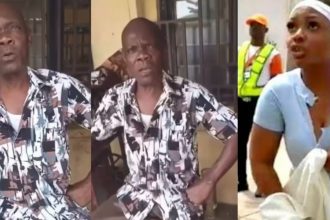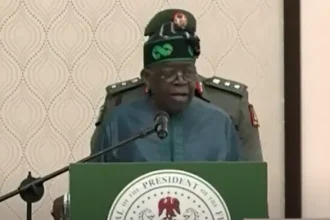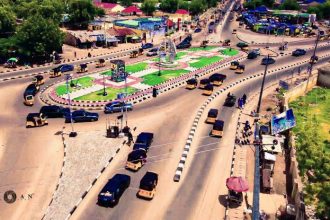The Presidency has defended its borrowing approach as essential for economic development, maintaining that responsible borrowing is not inherently problematic.
The clarification came during a presidential media briefing in Lagos, where top aides addressed the administration’s economic policies and progress.
Last week, President Bola Tinubu sought National Assembly approval for additional external and domestic loans totaling N34.15 trillion.
Responding to concerns about Nigeria’s debt profile, Special Adviser on Information and Strategy, Bayo Onanuga, stated: “It is not a sin to borrow. Even developed nations like the United States and the United Kingdom borrow beyond their GDP. The issue is not borrowing; it is what you do with the borrowed funds. We are a poor country with a large population. We must stop deceiving ourselves—Nigeria’s budget is smaller than South Africa’s. We have to be realistic about what we can fund without borrowing.”
Onanuga explained that the Tinubu administration has made significant strides in macroeconomic reforms despite inherited challenges.
He noted: “We acknowledge that the first year of this administration was turbulent. We faced serious challenges, including inflation, forex instability, and legacy issues beyond our immediate control. Today, Nigeria’s macroeconomic indicators have improved significantly. Global institutions like the World Bank and IMF have commended our efforts. Nigeria’s All Share Index has more than doubled from 50,000 in 2023 to over 110,000 in 2025. Our foreign reserves now stand at $21 billion, up from previous lows, and debt servicing has dropped from 97 per cent to under 60 per cent of government revenue.”
The Presidency highlighted ongoing interventions, including public-private partnerships, Infraco financing, tax credits, and state-matching funds for critical infrastructure. Onanuga added: “Over 600,000 students have benefited from the student loan scheme under NELFUND. We are laying the groundwork for Nigeria’s industrial base through technical education and financial access.”
Addressing efforts to alleviate economic hardship, he said: “We fully understand Nigerians are facing tough times, but the government is not idle. We have rolled out interventions like bulk procurement of essential drugs, direct agricultural support to stabilize food prices, and CNG adoption in transport. Ride-hailing drivers who earned N10,000 weekly now make that daily from fuel savings. The President also approved a six-month rice import waiver to crash prices and curb hoarding. Nigeria is not as rich as many think—we must recalibrate expectations and manage our ambitions realistically.”
Special Adviser on Public Communication, Sunday Dare, added: “We can’t build highways like Lagos-Calabar or Sokoto-Bida without borrowing. Such projects stimulate regional economies. The real problem isn’t debt but waste. With proper utilization, borrowing transforms nations.”
The Presidency reiterated its commitment to prudent borrowing for infrastructure and economic growth.







